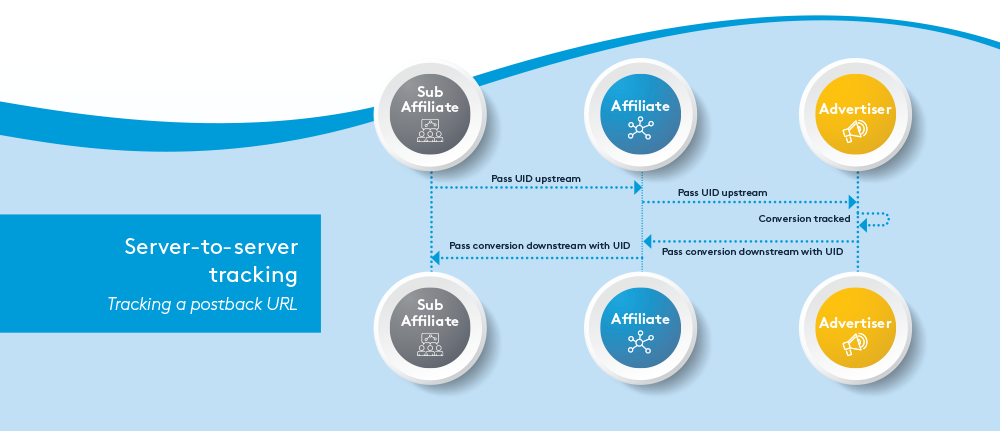Affiliate Marketing Strategies to Leverage in 2023

The affiliate channel’s measurable, pay-for-performance approach has historically offered one of the most resilient and adaptable channels available to brands. In 2023, this will continue to hold true.
Here are two key digital marketing trends shaping today’s digital ecosystem and how affiliate marketing strategies can empower brands to stay one step ahead.
Brands are competing to attract price-conscious consumers
The facts: Consumer spend is down, ecommerce competition is up
Consumer discretionary spend is alarmingly low with 63 percent of U.S. and U.K. consumers proactively slowing their spend on physical goods in response to inflation. This change in consumer behavior is expected to slow retail sales.
At the same time, ecommerce competition remains strong post-pandemic. During the height of COVID-19, 44 percent of European and North American ecommerce decision makers assessed the level of ecommerce competition as very tough with the immediate surge of businesses pivoting to ecommerce. By 2040, 95 percent of consumer purchases are expected to be completed through ecommerce transactions. In other words, the opportunity for brands is ripe, but so is the competition.
Globally, brands are faced with the challenge of boosting profit margins while battling competitors to win over consumers.
The strategy: Partner with affiliates to expand reach
To attract savvy (and frugal) consumers, brands can leverage affiliate partners to bolster their reach by offering enticing discounts. This approach also controls profit margins on a pay-for-performance model.
Here’s the reality. Price conscious shoppers are in search of one thing this year — the best deals. In fact, 86.4 percent of shoppers are frustrated when they miss the chance to save money on their online purchases and worse, one in three shoppers get upset at a brand for failing to alert them of potential savings.
With affiliate marketing, it’s a win-win situation. Consumers secure a sought-after deal. Brands gain greater campaign control, increased profit margins, and more clarity into their return on ad spend (ROAS). For example, customers acquired through affiliate marketing campaigns often drive $12 in ecommerce revenue for every one dollar spent to acquire them. This far surpasses the average ecommerce ROAS of $4 in revenue to every one advertising dollar spent.
Pro tip
With an increase in affiliate traffic, brands should fast track consumers through a streamlined and efficient checkout process. The simplified checkout ensures brands avoid falling victim to missed revenue from the 69 percent of consumers who abandon their online shopping carts.
Google’s cookie-less rollout is delayed – Buying advertisers time to reconfigure tracking
The facts: Google delays the cookie phase-out for a second time
In a concerted effort to provide web users a better (and faster) browsing experience and to strengthen consumer privacy, in 2020 Google announced a plan to phase out third-party cookies by Q2 of 2022. Things didn’t quite go according to plan however.
In June 2021, Google delayed the phase out an additional year, calling for the removal of cookies in 2022. As the deadline came and went, yet another target date was set for 2024. Google’s potential cookie-less future has massive implications for digital marketers. For instance, third-party cookies are fundamental to tracking and building audiences for remarketing campaigns and streamline the ability to deliver targeted ads. The effect is even greater considering Chrome is the most popular browser worldwide with more than six out of ten people using Chrome during their internet searches.
Now the question remains, will Google’s breakup with cookies ever occur or are digital marketers just being led on?
The strategy: Leverage advanced tracking
The continuous delays can lead one to question the reality of a cookie phase-out by 2024, but failing to adapt can also be detrimental to your business.
Brands running an affiliate marketing program need performance-based technology that delivers server-to-server tracking that offers the most accurate approach to measurement and complies with consumer privacy requirements.
This is how server-to-server tracking works. An anonymous consumer’s interaction is assigned a unique ID (UID). In place of a cookie, a click ID or session ID can be stored server-side, or within the advertiser’s first-party cookie, until the point of conversion. When the conversion occurs, the consumer’s click is attributed to their conversion through the UID. Because server-to-server tracking does not depend on cookies that can be blocked by a browser or cleared by a consumer, this tracking method is the most accurate approach to measure affiliate marketing campaigns.

Due to browser restrictions and evolving consumer privacy regulations, the risk of consumer privacy violations can seriously impact a brand’s integrity and reputation. On the flip side, brands that invest in complying with consumer privacy regulations build confidence with their consumers and as a result 84 percent of consumers are more likely to remain loyal to the brand.
Pro tip
Learn more about server-to-server tracking. Get a free ebook that deep dives into cookie-less tracking.
Other content you might be interested in:
- Digital Marketing Statistics That Will Shape 2023
- A Brand’s Guide to Boost Profit Margins with Affiliate Marketing in The Wake of Rising Digital Ad Prices
- Building a Performance Marketing Program Resilient to Economic Fluctuations